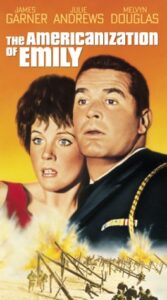A few weeks ago, while we were vacationing in Colorado, I got high. When I was young — high school, college, and into grad school, I used to get high a lot. Too much, probably. But upon marrying Nancy and starting to pretend to be an adult, I gave up weed. For a long time, I was fine with that. I didn’t miss it. More recently, that began to change. I was curious: would I enjoy getting high now, as an old man, as much as I did as a kid?
Surprise! I did! I enjoyed it a lot. I took a gummy — a fraction of one, actually. I’m fully aware that today’s marijuana is a lot more potent than the stuff I was used to in my youth. And I ate the gummy with a clean conscience, since the evil weed is legal in Colorado. When I have the opportunity, I will do it again.
Why the confession?
The other day, I ran across an article in the New York Times that basically consisted of writers confessing to stuff they do that is of questionable morality and, in some cases, legality. Some of the testimonials were fairly mild — playing violent video games, shopping at Amazon. Others were more serious. One writer confessed to being a serial shoplifter. Another likes to drop acid at concerts. My confessions aren’t likely to be nearly so entertaining, but still I figured, yeah, I do some embarrassing stuff, too. So, why not?
For the record, as much as I dislike Amazon and lament the site’s impact on the literary marketplace, I shop there, too. All the time. All. The. Time. What can I say? It’s cheap, quick, convenient. I’m not proud of this, but this post is all about honesty, right?
I also play stupid games on my phone. Not violent ones — I don’t enjoy those. But dumb, wasteful, pointless? Check, check, and check. I play them daily. I do all the silly daily-goal tasks, I accumulate . . . stuff — whatever the game tells me I ought to accumulate. And I enjoy the games immensely. I am ridiculously pleased when things go well, and comically frustrated when they don’t.
I really, really enjoyed the Bridgerton spin-off, Queen Charlotte. Yes, I did.
I have a stunningly large baseball card collection. It numbers between 15,000 and 17,000 cards, the oldest being from the 1950s and the newest being from the early 2000s. I started collecting when I was five years old, and I still have many of those original cards. And I will admit that when I was a kid, I stole a few packs of baseball cards from a local store. Not proud of that at all.
I have watched the entirety of The West Wing — from series pilot to series finale, seven season’s worth, 154 episodes — at least ten or twelve times. What can I say? I love the characters, have long been a political junkie, and think that Aaron Sorkin writes like a god. I will also admit that during the George W. Bush Administration, and again during the Orange Guy’s Administration, I took refuge emotionally in the Bartlet White House.
I have a TERRIBLE sweet tooth. I manage to control it for periods, and I eat well in other ways. But oh, how I love my desserts. Candy, cookies (I love, love, love cookies) ice cream, cake, puddings. I just took a break from writing this post to eat a bunch of Nutella straight out of the jar. My favorites? Chocolate chip cookies, Twizzlers, any ice cream with caramel or butterscotch in it. There are a few things I don’t like — cheesecake, desserts with nuts in them, anything pumpkin flavored — but usually, if it’s sweet, I love it.
Yeah, okay. Most of this is pretty tame stuff. I don’t drink to excess. I don’t cheat on my wife. I don’t drop psychedelics or break the law or lie on my tax returns. The fact is, I’m pretty boring. I’m a nice guy. In most respects, I always have been. When I was young, I was the kind of guy women wanted as a friend, but weren’t drawn to romantically. I wasn’t in any way edgy or “dangerous” or exciting. I also wasn’t tall or good-looking, which didn’t help . . . .
But that’s okay. The same qualities that make me a bit boring also make me a good husband, a good dad, a good friend. I’ll take that any day.
Have a great week!









 Hidden Gem movies: Two entries here, too, both of them idiosyncratic. But that’s the point, right? The first is a film from 1964 called The Americanization of Emily. It is a war movie set during World War II, but it will turn your expectations upside down as it rejects normal images of heroism and wartime valor. The cast is great — Julie Andrews in the title role is terrific. She’s worldly, sassy, and a long, long way from Mary Poppins and Fräulein Maria. James Garner, a favorite of mine, is her love interest, and is not at all the usual romantic lead. James Coburn and Melvyn Douglas are strong in supporting roles.
Hidden Gem movies: Two entries here, too, both of them idiosyncratic. But that’s the point, right? The first is a film from 1964 called The Americanization of Emily. It is a war movie set during World War II, but it will turn your expectations upside down as it rejects normal images of heroism and wartime valor. The cast is great — Julie Andrews in the title role is terrific. She’s worldly, sassy, and a long, long way from Mary Poppins and Fräulein Maria. James Garner, a favorite of mine, is her love interest, and is not at all the usual romantic lead. James Coburn and Melvyn Douglas are strong in supporting roles.